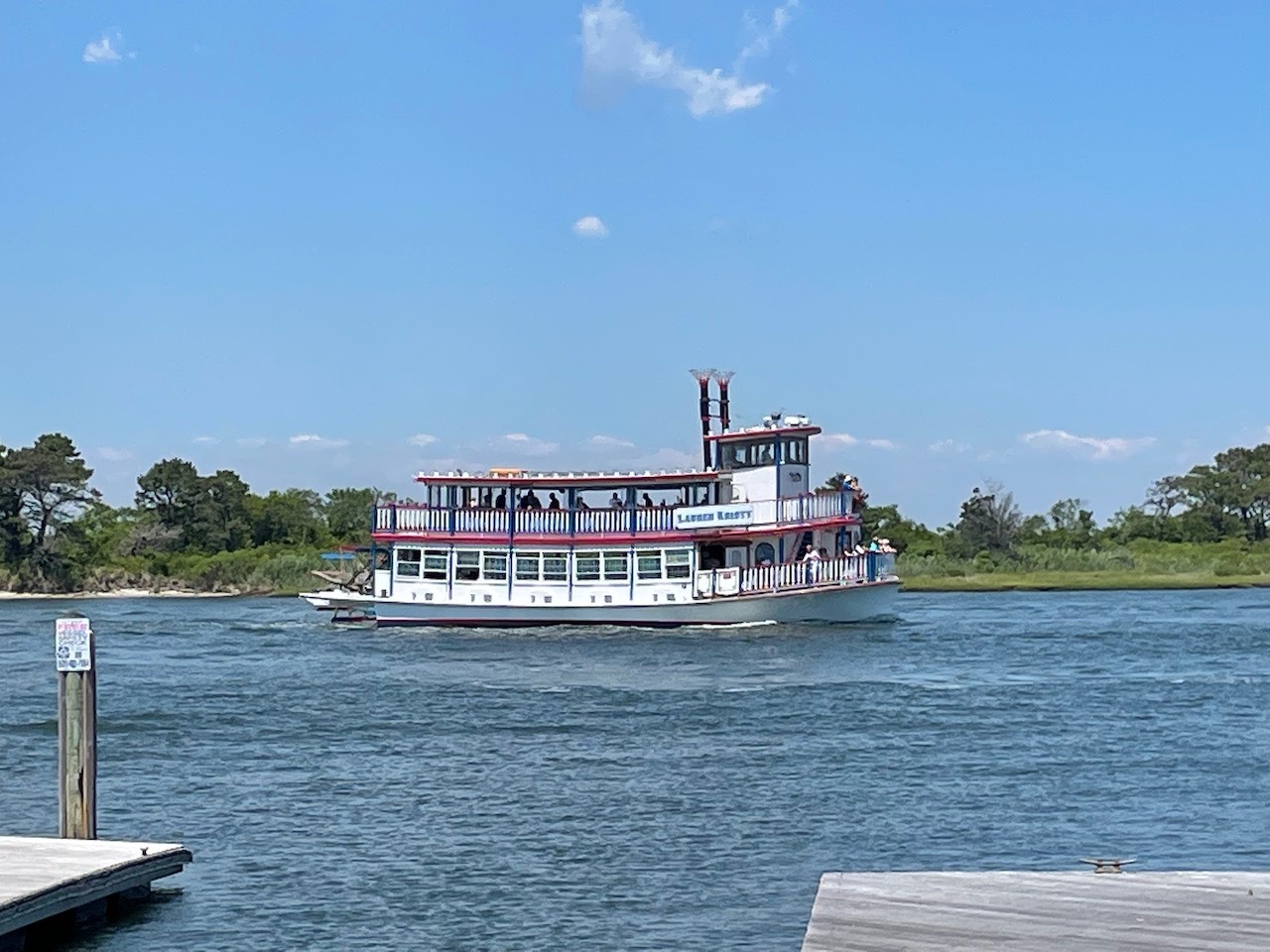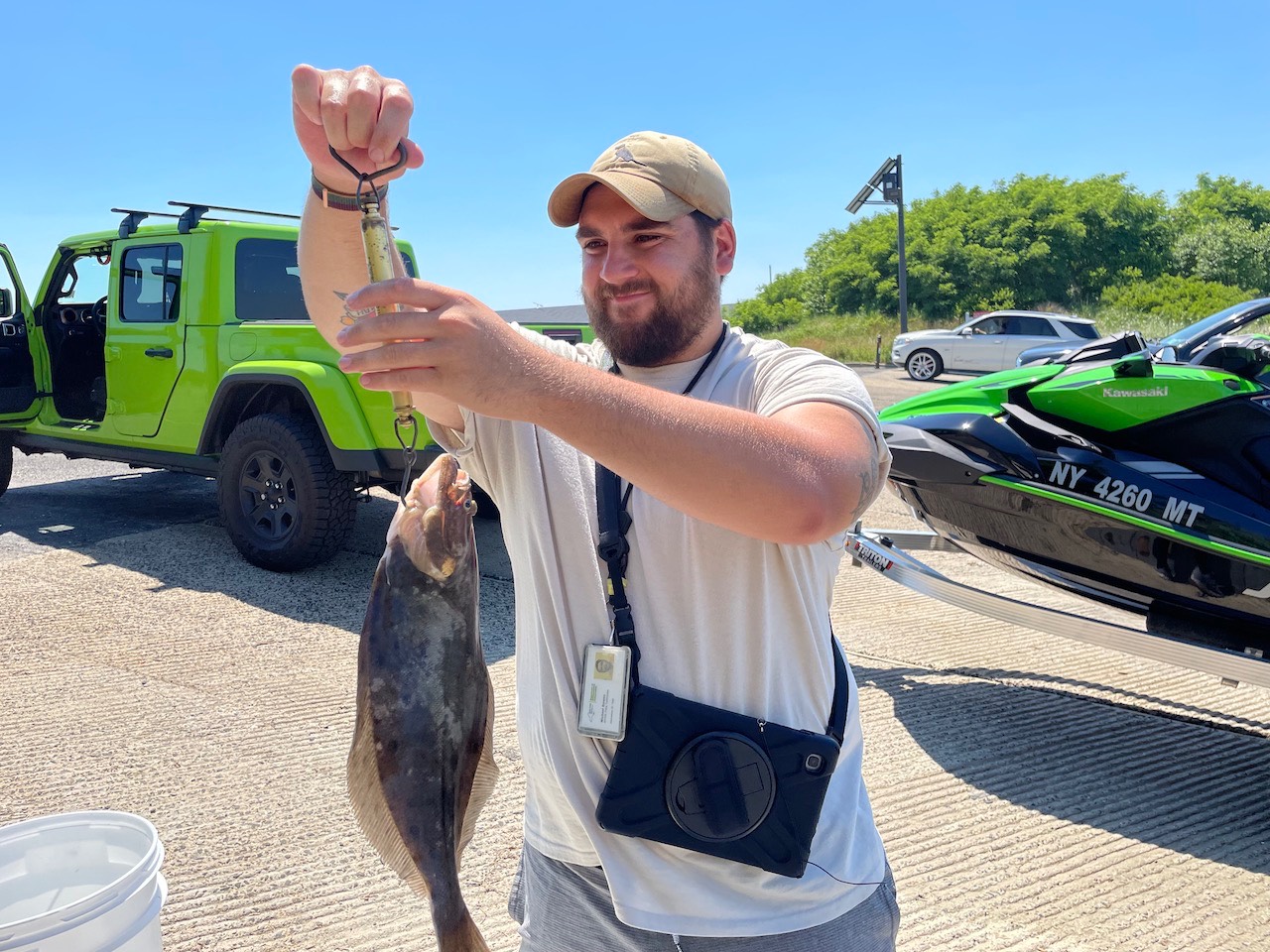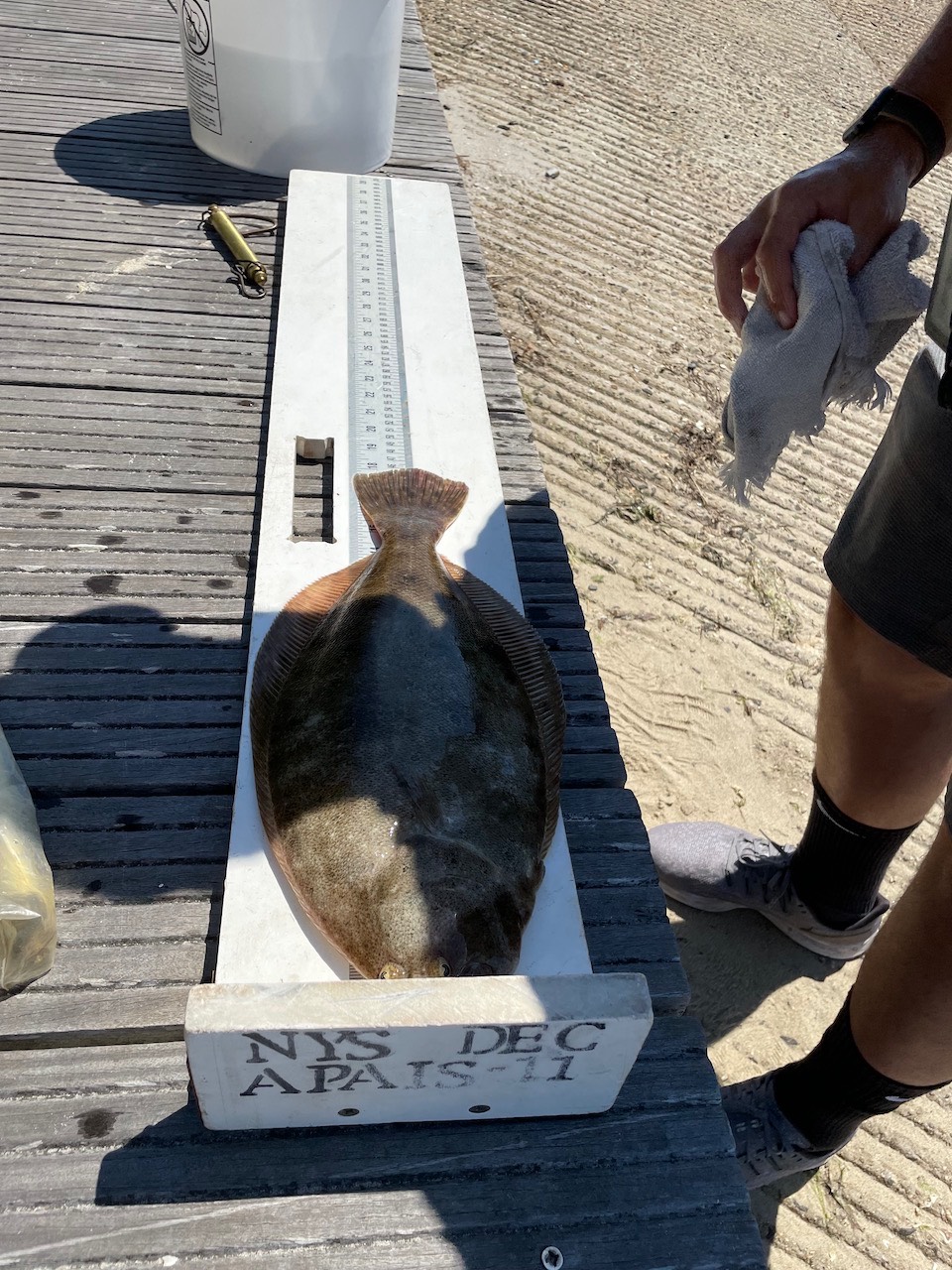"I got keepers!" one of the four middle-aged men hollers from onboard a small fishing boat approaching the boat ramp.
"How many?" a younger man calls back excitedly from shore.
"Two. Flukes," the man responds, pointing to the white, plastic bucket on the deck containing the two caught flatfish.
"Great," the younger man says as he walks over to the dock where the others are tying up the boat. "Mind if I ask you a few questions?" As he walks over, his state Department of Environmental Conservation T-shirt helps to signal that this man isn’t here solely for a love of fish or outdoor recreation. He's here to collect some very important data.
Mike Bowen, DEC employee and master's candidate in Stony Brook's Marine Conservation and Policy program, is one of a handful of people conducting fisheries surveys across Long Island on behalf of the DEC and the Atlantic States Marine Fisheries Commission, an interstate government organization that helps regulate all American fisheries on the Atlantic. Today, he’s at Captree State Park in Bay Shore, looking to get as much information as he can from the anglers coming in at the boat ramp. It’s a confidential, voluntary battery of questions Mike asks anyone willing to hear them. The survey aims to collect as much information as possible on recreational fishing in the region. It asks about everything from the number of fish caught on each excursion (including those thrown back) to the cost of snacks purchased for the trip.
"The data I collect directly impacts the fishery (meaning all the fishing and recreational fishing that occurs throughout NY State) and helps set the regulations for next year and the years after that," said Mike, who spends at least several days a week sitting by boat ramps and docks with his iPad, handheld scale, and measuring board ready to ask questions and take fish measurements of anyone willing to give him some of their time. "The more data we collect, the better it gets." And by "it" he means an understanding of how the different fish stocks in the region are doing, and the capability of the DEC, the ASMFC, and other regulatory bodies to monitor the fisheries with the goal of making them sustainable. After all, sustainable fishing practices are the end game for this kind of work.
"Fish are not an infinite resource. Managing fish species ensures long-term sustainable use. You can't fish forever at pressures that are unsustainable." Words to live by and one of the main motivations behind these surveys. They’re just one piece of the ongoing monitoring and policing of fish stocks meant to replenish the populations of the many overfished species that call the waters of the East Coast home. A piece that Mike says most fishermen understand is important.
That isn't to say everyone who comes up this boat ramp answers Mike's questions with a smile. Some refuse, though none too rudely today. A few are more than happy to answer most questions until it comes time to give out personal information. And one fellow becomes particularly chatty about his thoughts on "Biden's damn gas prices" when the socioeconomic section starts. But most of the people Mike asks are willing to take the survey. And, in his experience, the most difficult offenders to deal with aren't, as one might expect, grumpy scofflaws who just want to fish and be left alone. It's the people who fish these waters for subsistence - the ones who come to the docks after a long day's work in hopes of catching a meal. "It's hard to manage people who are literally trying to feed their family," Mike says, and it's an understandable feeling.
So how can fisheries regulators address this problem? The same way they can ensure an overall greater understanding of fisheries management in the future: outreach and education. Ideally, aimed at the next generation of New York State's recreational anglers. "If you teach a kid how to fish... You know the saying," Mike chuckles before expanding on the old adage, "You could create long-time fishermen who are focused on conservation." Mike says he hopes to someday implement a program aimed at teaching young people, particularly those in underserved communities, how to fish and why sustainable fishing is so important. His idea for an after-school program, one that is equal parts fun and environmentally conscious, could help to ensure the fishermen of the near future never put a hook to water without considering the broader issues.
As far as what people can do now to make fisheries more sustainable, "If you see someone in a green or tan shirt who has an iPad and wants to ask you about your fishing today, answer his questions." Mike smirks. "Because it is helpful and it actually does make a difference." Survey work like this combined with outreach like what Mike has in mind will lead to a future where fisheries are sustainable and produce more "keepers" for eager fishermen like the excited fluke-catcher Mike's about to disappoint. Because once flattened out on his board, it turns out both fish are just shy of the size limit. There'll be no true keepers caught today, not by these fishermen or the few dozen others Mike surveys over the course of his six-hour shift.
Sustainability, it seems, remains a ways off.
 Alt text: Ferry on the water, just off a dock.
Alt text: Ferry on the water, just off a dock.
 Alt text: Man holding up a caught fish, dangling by a hook.
Alt text: Man holding up a caught fish, dangling by a hook.
 Alt text: A flat fish, called a fluke, laid out on a measuring board.
Alt text: A flat fish, called a fluke, laid out on a measuring board.
